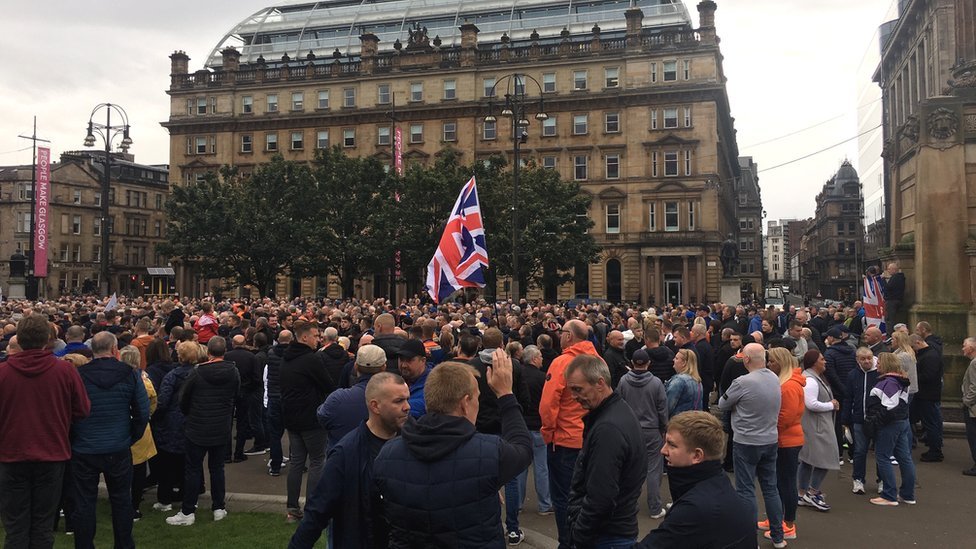
Glasgow: Hundreds of people joined a demonstration in Glasgow in protest at a decision to ban marches this weekend over fears of sectarian disorder.
Four Loyalist marches and an Irish Republican parade were banned by the council after a meeting on Wednesday.
It followed violent sectarian clashes on the two previous weekends.
The head of the Orange Order in Scotland said it would soon decide whether to pursue legal action against Glasgow City Council.
The Scottish Protestants Against Discrimination (Spad) group, backed by the Orange Order, organised Saturday's protest outside Glasgow City Chambers.
Jim McHarg, Grand Master of the Grand Orange Lodge of Scotland, said his group was standing "shoulder-to-shoulder" with Spad in protest at the council's decision.
He said: "There is no evidence of any protests or any planned protests against them. There should have been no reason to ban this parade because of trouble at the Republican parade.
"Civil religious liberties are being taken away from people of this city and across the country by the nationalist-run authorities. There seems to be an agenda against protestants, against my organisation in particular. We feel it is unjust and unjustifiable.”
He added: "At the moment we have paperwork away to our lawyers. We are still awaiting the final written decision by the council processions committee.
"We will run it past our QC and then make a valued judgement on whether we can take this case up with the courts.”
It is understood that the council buildings were closed on Saturday to staff apart from a few exceptions.
On Saturday 7 September, a police officer was injured as two Irish Republican marches and Loyalist counter-demonstrations were held in Glasgow.
The counter-demonstrations at both marches were quickly contained by police, who had deployed officers in riot gear and mounted police.
On Saturday, police confirmed a 32-year-old man had been charged in connection with an incident in which a police officer was injured after being hit by a pyrotechnic in Glasgow on 7 September.
He will appear in court on Monday.
The week before the city centre incident, a full-scale riot developed in Govan when Loyalists tried to disrupt another Irish Republican parade.
Police told Glasgow City Council that its intelligence pointed to a "strong likelihood" of disorder at marches in the city this weekend.
Superintendent John McBride said there had been calls on social media from Republicans to target Loyalist events and demands from Loyalists to protest against Republican parades.
Glasgow City Council leader Susan Aitken said the violence and destruction on the city streets over the past two weekends had been "simply unacceptable”.
"We can't have repeats of that nor can we repeat the very heavy police presence that was on the streets last Saturday," she said.
"It is not sustainable or desirable to constantly have 400-plus officers in full public order gear on the city streets every weekend.”
Aitken said there needed to be a moratorium on marches to provide some "breathing space" and an opportunity to work out what to do next.
"Whatever we thought we knew about parades, that's not what is happening any more," she said.
The SNP politician called on the leaders of the organisations involved to "step up and give some confidence and guarantees" that there would not be a repeat of the violence of recent weeks.
The Church of Scotland said it recognised that the decision made by Glasgow City Council was not based on religious discrimination nor a desire to oppress the protestant faith.